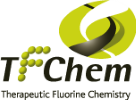
Skincare Dark Spot Correction
Globally, demand for skincare that corrects dark spots has been driven by a desire to improve the look and feel of skin. Medical conditions such as hyperpigmentation, melasma, vitiligo and rosacea are also contributing to the demand for safer and more effective skin correcting creams.
There is a recognized need for safer, more effective dark spot correcting agents. The most common active ingredient worldwide is hydroquinone. While it is effective, hydroquinone is linked to cancer and has been banned in Europe since 2001. In the United States, restrictions have been placed on concentration levels of hydroquinone; over-the-counter creams are restricted to no more than 2% hydroquinone and a prescription is required to obtain a maximum 4% hydroquinone concentration. Despite the dangers, restrictions and bans, hydroquinone is still widely used around the world. Other skin lightening agents (e.g. arbutin) have also been banned due to their instability and subsequent breakdown into hydroquinone.
Sirona Biochem’s TFC-1067 for the treatment of Dyschromia (Dark spots on the skin)
Sirona Biochem has developed an active ingredient, TFC-1067, which studies prove is safer and more effective than various well-known actives. To learn more, please see Sirona’s Skincare Overview.
The development program is directly supported by the French government. Recognizing the exceptional innovation of Sirona’s subsidiary, TFChem, the French government awarded the laboratory a $1.9M grant in 2011. The grant is designed to bring the skin lightening program to a commercial-ready stage. A cosmetic consortium, which includes the University of Rouen and contract research organization, Biogalenys, has also been established to support Sirona’s cosmetic programs.
Several studies have been concluded to demonstrate the effectiveness and stability of Sirona’s active ingredients, including TFC-1067. In 2019, the company completed a clinical study in the USA which showed that the compound is more efficacious for creating an even skin tone than the gold standard, hydroquinone.
The clinical study using .2% TFC-1067 and conducted by Dr. Zoe Draelos of Dermatology Consulting Services, North Carolina, has been peer reviewed and accepted for publication in the renowned Journal of Cosmetic Dermatology (study abstract).
In October 2020, Sirona announced that it has joined forces with a top 10 pharmaceutical company to conduct a second clinical trial of TFC-1067 at a higher dose (.4%). While remaining extremely safe, this dose showed excellent results at a quicker pace. The study was completed in February 2021.
All studies were completed in accordance with the regulatory methods of the European Centre for the Validation of Alternative Methods (ECVAM) and the Organization for Economic Co-operation and Development (OECD). No animals were involved in the development and testing of Sirona’s skin lightening compounds.
Commercialization
June 2022, Sirona announced a collaboration with Allergan Aesthetics for a global license for TFC-1067. Press release here.
For any additional information please contact info@sironabiochem.com.



